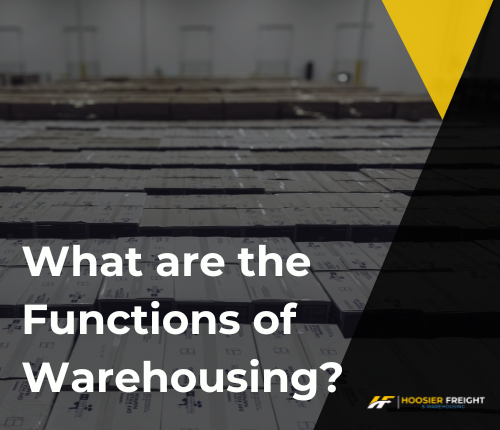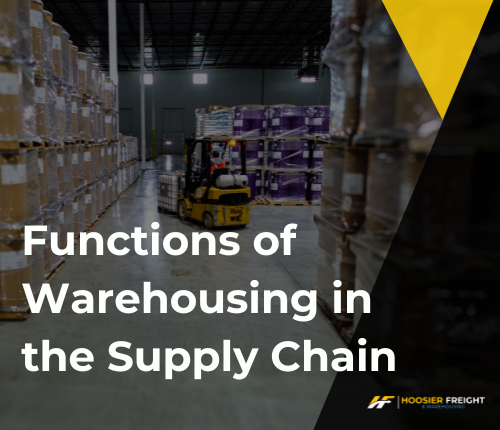
What is the Significance of Warehousing?
In the Freight and Warehousing landscape, comprehending the importance of warehousing offers insights into its indispensable role across logistics operations. Warehouses serve not just as storage spaces but as crucial hubs that bolster supply chain efficiency and responsiveness, proving to be vital to both the economy and the logistics sector.
What is the Main Objective of Warehousing?
The primary aim of warehousing is to store goods securely and efficiently, facilitating effective inventory management and ensuring products are available to meet consumer demand seamlessly. This buffering capability of warehouses supports continuous supply chain operations, helping to minimize disruptions.
“A warehouse’s value lies not just in storing products but in its ability to streamline the supply chain,” notes a logistics expert from the Global Supply Chain Institute. This insight underscores warehousing’s critical function in maintaining product flow and availability.
What is the Significance of Warehousing?
Warehousing profoundly influences the logistics industry by supporting various activities essential for the orderly movement of goods.
14 Key Logistics Activities
From inventory control to dispatching, warehousing underpins 14 key logistics activities that are crucial for operational success. For example, “Effective warehousing can cut logistics costs by up to 30%,” according to a Journal of Business Logistics article, highlighting warehousing’s economic significance.
- Inventory Management: Tracking and controlling stock levels to ensure availability and minimize holding costs.
- Order Processing: Handling customer orders from receipt through to fulfillment, ensuring accuracy and timeliness.
- Warehousing: Safe and efficient storage of goods, including specialized storage for perishable or hazardous materials.
- Transportation Management: Planning and executing the movement of goods from origin to destination, optimizing routes and load configurations.
- Packaging and Repackaging: Protecting products for shipment and handling, and repackaging goods for distribution or retail.
- Assembly and Kitting: Combining multiple items into ready-to-ship kits or assemblies, often as part of value-added services.
- Loading and Unloading: Efficiently moving goods into and out of transportation vehicles and storage areas.
- Quality Control: Inspecting and verifying goods for defects or damage to maintain quality standards.
- Returns Management: Handling returned goods, including inspection, restocking, and processing refunds or replacements.
- Cross-Docking: Minimizing storage time by directly transferring goods from inbound to outbound transportation modes.
- Inventory Forecasting: Predicting future inventory requirements based on historical data, trends, and seasonality to optimize stock levels.
- Vendor Management: Coordinating with suppliers to ensure timely and cost-effective delivery of goods and materials.
- Customer Service: Providing support for order inquiries, tracking, and issues resolution to ensure customer satisfaction.
- Compliance Management: Ensuring that all logistics activities comply with relevant laws, regulations, and industry standards.
What is the Significance of Warehouse Management?
Efficient warehouse management optimizes operations, ensuring goods are stored, handled, and dispatched effectively, enhancing supply chain performance.
Warehouse Operations
Managing a warehouse entails overseeing all aspects of its operations, including leveraging Warehouse Management Systems (WMS) to automate tasks and improve accuracy. The Warehousing Education and Research Council reports that “Implementing a WMS can lead to a 99.5% improvement in order accuracy,” showcasing the pivotal role of management in logistics.
Why is Warehousing Important in the Supply Chain?
Warehousing’s importance in the supply chain stems from its ability to manage goods efficiently, ensuring their availability to meet market demands.
Importance of Warehousing in Logistics
Warehousing’s strategic significance in the supply chain enhances goods distribution, reducing transportation costs and delivery times. Amazon’s warehousing strategy, enabling same-day deliveries for Prime members in certain areas, exemplifies how warehousing innovations can redefine consumer expectations, as detailed in a Harvard Business Review case study.
Warehousing’s role in our economy and logistics system is profound. By facilitating key logistics activities, streamlining warehouse operations, and enhancing supply chain efficiency, warehousing ensures that goods are delivered promptly and reliably. Recognizing warehousing’s importance is crucial for businesses aiming to enhance their logistics operations and maintain a competitive edge.
Achieve logistical excellence with Hoosier Freight and Warehousing. Our specialized warehousing solutions are tailored to optimize your supply chain. Contact us to discover how our expertise can bolster your logistics strategy.



